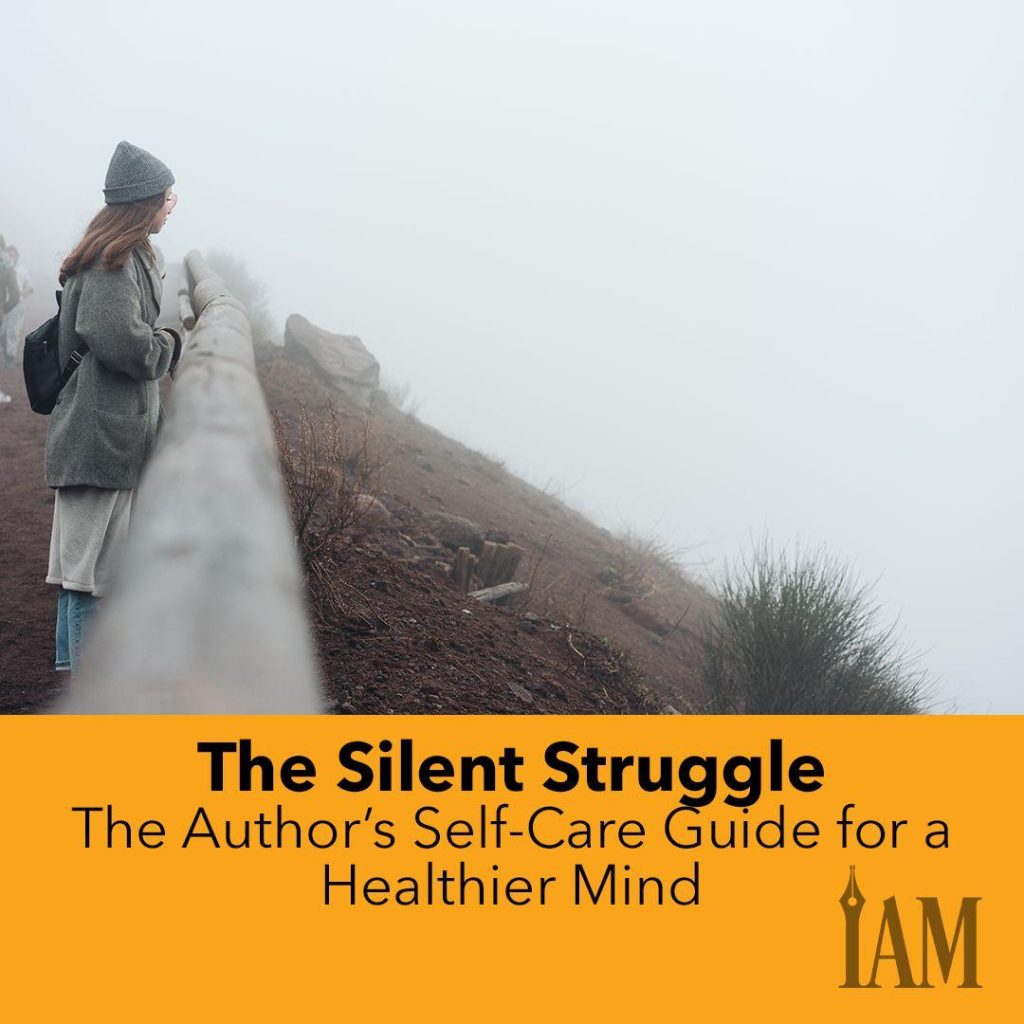Angie Martin
When dealing with mental illness, it’s often hard to power through the low points, let alone write your next book. But there are several things you can focus on during these times, as well as every day, to bring normalcy to your life as much as possible.
The National Institute on Mental Health recommends placing self-care first. Place the oxygen mask on yourself before helping others. This may seem difficult if you have a family who depends on you, but if you’ve not cared for your own mental health needs, caring for others can be quite the task.
Self-care looks different with mental health. Eating right, exercising, and getting enough sleep are at the top of the self-care list. Ensure you always take your medications on time, and seek professional help as needed.
Don’t force yourself to write a certain amount each day, unless that is one of your coping mechanisms. Set small, attainable goals or tasks to accomplish, such as writing five hundred words or editing only a chapter or two. Everyone has different methods of dealing with stress, so find the way that helps you most. “I meditate and read positive sayings daily,” says one author with anxiety, who spoke on a condition of anonymity. “If I become too overwhelmed, I go straight to my bath, where I relax with bubbles, candles, and a good book.”
Focusing on positivity is important. Avoid the news if it causes you any stress, and keep in touch with family and friends for support and a kind word.
No matter which mental health issues are in your life, there are many tricks to keeping your mind healthy. Your therapist can help you find new ways to cope daily while you continue to write amazing works.
This is the third and final article in a series of articles discussing mental illness and the role it can play in an author’s career.
Angie Martin
As always, if you suffer from mental illness, these tips are not in lieu of seeking proper professional treatment. If you are in immediate danger of suicidal thoughts or tendencies, please contact the National Suicide Hotline at 988, call a local hotline, contact 911 to have an ambulance sent to your location, or seek immediate treatment at the closest emergency room. You can contact the National Alliance on Mental Illness at 800-950-NAMI (6264) or live chat with someone on its website, https://nami.org.

